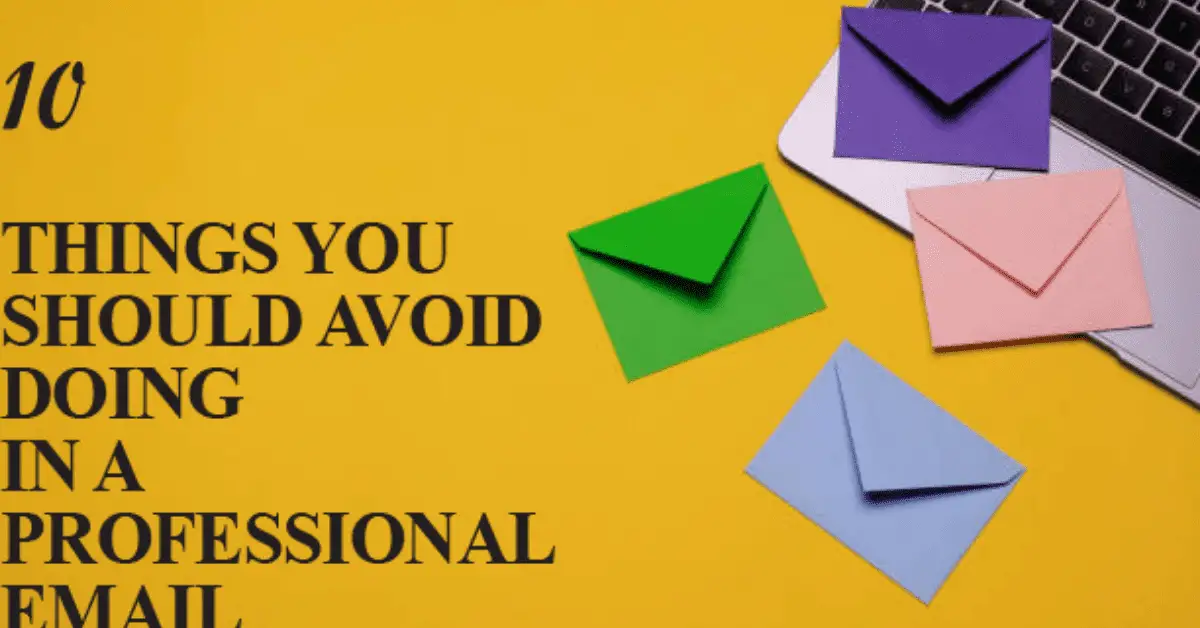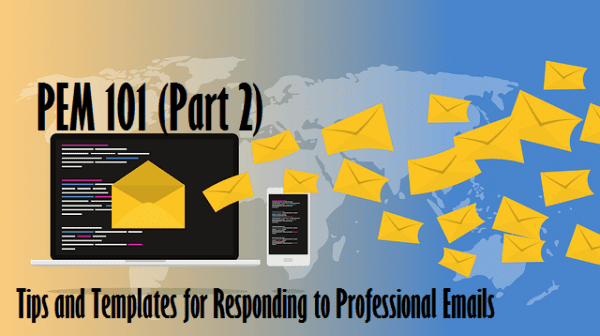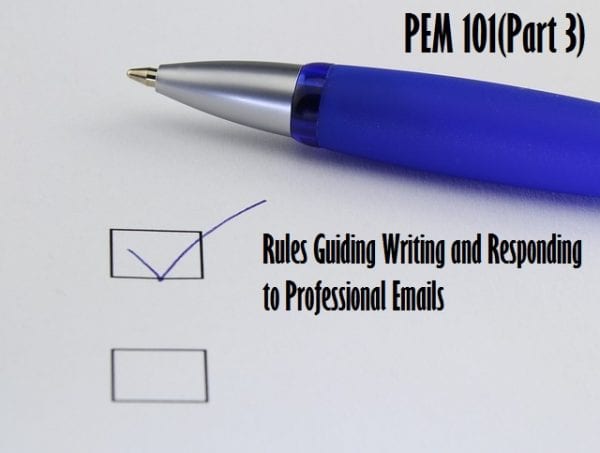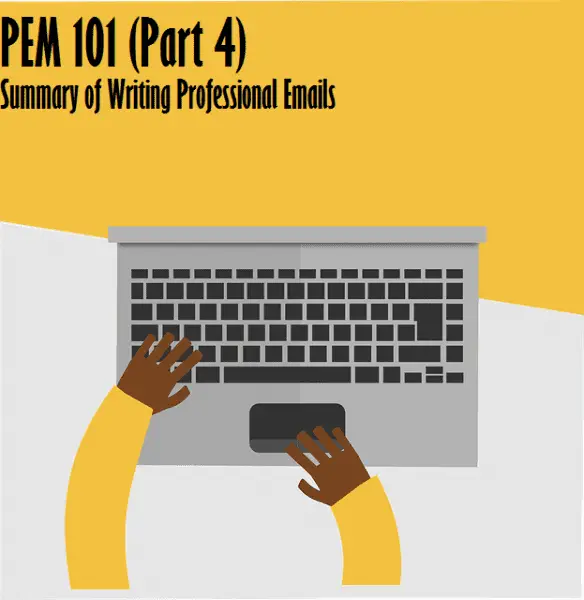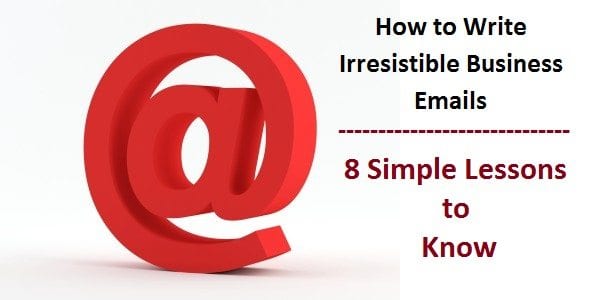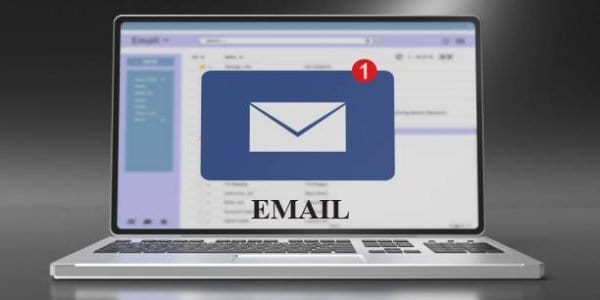
When writing a professional email, there are rules that must be observed. Writing a good and professional email shows your level of professionalism and builds your credibility, this is extremely important to climb the corporate ladder.
Research shows that global email users amounted to 3.9 billion users and it is expected to reach 4.3 billion users in 2023.
Research also shows that 293.6 billion emails were sent and received each day in 2020 and would reach 347.3 billion in daily emails in 2022.
From the statistics above, it is obvious that a ton of emails are sent and received on a daily basis.
This means that you have to be very careful with your approach, choice of words and general delivery when writing a professional email.
If you do not choose your words and approach carefully, your email will fail to pass across the information effectively and this can greatly affect your credibility.
Professional email etiquette is all about writing emails that are straightforward, and error-free and as effectively as possible, convey the intended message.
In this blog post, I am going to discuss some of the things you should avoid doing when writing a professional email.
10 Things You Should not do in a Professional Email
1. Avoid Choosing a Bad Subject Line
In any email, the subject line is the first thing your recipient sees upon receipt.
Subject lines are essential and crucial to your email because it gives your recipient an idea of what your email entails and answers the question of why they should open it.
Therefore, your email subject line should be strictly professional and at the same time attention-grabbing to avoid your email been sent to the trash or spam folder.
A good subject line should be precise and spell out what your email is about. A one-line sentence is often the best strategy to follow when writing subject lines.
Other than emails selling a product, a one-sentence subject line is often the safest option. An example of an email that should be a single sentence is a job application email. A job application email should ONLY contain the position you’re applying for.
Example
Let’s say you are applying for the head of logistics in a company, let’s say Amazon.
Your email subject line would be like this "Application for the head of logistics at Amazon".
This has captured your whole message and when the recruiter or HR sees this they instantly know what your email is about.
In a situation where they didn’t specify, make sure your subject line is related to the content of your email.
2. Not Using the Proper Salutation
In any professional email letter, it is best to start with a formal greeting like Dear Sir, Dear Madam, Dear Mr. King, etc. Avoid using greetings like “hey there, hello there, etc.
These kinds of greetings are unprofessional and casual. If you are not sure about the name of the person you are contacting, it is best to use “Dear Sir/Madam”.
Using salutations like, “To whom it may concern” is highly discouraged as it gives the impression that you haven’t done enough research on the recipient of your email.
Remember sending the wrong salutation to clients, business partners, HR’s, Head of departments, etc creates a wrong impression.
Also, use appropriate closings like “sincerely“, “faithfully“, “best regards“, “thank you“, etc with your name in a professional email. Avoid closing like best wishes, cheers, etc.
When writing email salutations, it is important that you do prior research on the organization, college or institution you are applying to. This gives you enough information to address the letter to the appropriate person.
3. Avoid Spelling Mistakes

Grammar and spelling mistakes can happen to literally anyone, even professionals.
When writing professional emails, spelling and grammatical errors cannot be ignored. Sometimes mistakes or wrong spellings can give a completely different meaning to a word or sentence thereby passing across the wrong information or entirely confusing the recipient.
Grammatical and spelling mistakes say a lot about your credibility and professionalism, this is why they are avoided at all costs. There’s a number of tools that make editing and proofreading a lot easier. These tools scan through your email essentially providing an extra pair of artificial-intelligent eyes. Some of these tools are Grammarly, Hemingway editor, etc.
4. Avoid Adding Attachments Unless Asked by the Recipient
Experts have advised that you should avoid including an attachment in a professional email as much as possible.
Therefore it is important for you to state that you are adding an attachment in your mail. State the kind of file or document and the information it contains so the recipient would know that the file is from you.
5. Avoid Sending Mails to the Wrong Recipient
Sometimes you might be in a hurry to send an email to apply for a job because of the deadline or time frame attached to the job application.
This might cause you to act irrationally and send emails with sensitive documents to the wrong person or recipient.
Before sending any email, no matter the situation, make sure you double-check the recipient’s email address to avoid the costly mistake of sending your mail to the wrong recipient.
This mistake may be detrimental to you as you may be arming an unknown individual with sensitive information needed to harm your company.
Therefore you have to be careful when sending your email. make sure you research the organization or institution properly to know the right address you are supposed to email your email to.
6. Avoid Long Emails
The goal of any email letter is to get the message across to the recipient in the most concise manner.
Sometimes, your content might be brief and you may feel the need to add more words to make it “more professional”, desist from actions like this. No rule states that email professionalism is directly proportional to its length.
There is nothing wrong with your email being short, granted it passes the message across.
Professional emails should be clear and straight to the point and be void of unnecessary words.
7. Using the Wrong Tone
Remember that the goal of any email is to pass a message across, therefore, your tone matters a lot when writing a professional email.
Make sure your content is easy to understand, less persuasive, and more neutral. Keep it short and simple, specific, and straight to the point.
A professional email is nowhere to flaunt your vocabulary skills, the goal is to pass across your message in the simplest form.
Above all make sure your email is tailored according to the needs, preferences, and knowledge of your recipients.
8. Avoid Using Abbreviations and Emojis
When writing a professional email it is best to write in full and avoid abbreviations. When writing formal emails or writing to your superiors, it is advisable to do it without emojis.
Remember not everyone is familiar with emojis, and not everybody knows or understands every single abbreviation.
Therefore, to effectively, make sure you write in full to avoid any errors.
9. Improper Use of “Reply All”
This is usually common in a workplace (company or organization). This happens when an email response that is aimed at one person, in particular, ends up going to an entire team or a large number of people.
For example, your boss just sent a message congratulating everyone on a job well done on the contract the company just secured.
Although it is not necessary for you to reply, and should in case you do, don’t hit the reply-all button.
To avoid including unnecessary recipients, make sure to check the others that received the email and make sure that you are sending your reply to the correct recipient(s).
The idea here is not to bombard people with unnecessary emails and to avoid sharing sensitive documents with the wrong recipient.
Unless there’s a clear need for everyone involved to know about the content you are about to send, please avoid it.
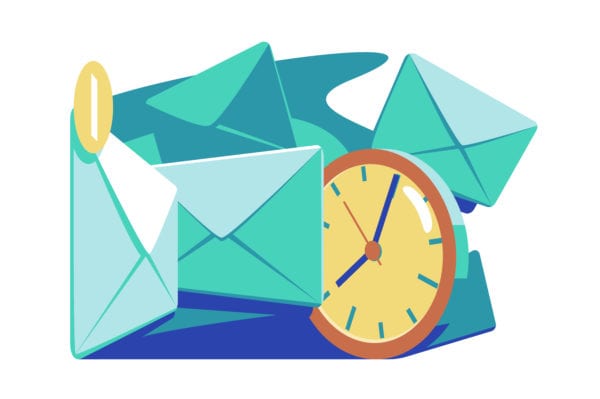
10. Avoid sending emails at the wrong time.
Sending emails late at night or during weekends does not really show professionalism and it can have an effect on your email.
Sending professional emails outside of normal business hours usually 8:00 AM to 5:00 PM can give a negative impression on your personality, that you lack time management skills and you are desperate for the recipient’s reply.
Stick to sending emails during business hours, and if you must answer emails at night or on weekends, schedule them to send first thing in the morning during work hours. This all depends on the nature of your job and how time-sensitive those emails are.
Conclusion
When writing a professional email, there are things you should NOT do. A professional email can be sent to everyone in an organization, because of this, it’s important that a professional email is free from errors of all kinds. From the guideline in the article, you’ll find the dos and don’ts about writing professional emails.

